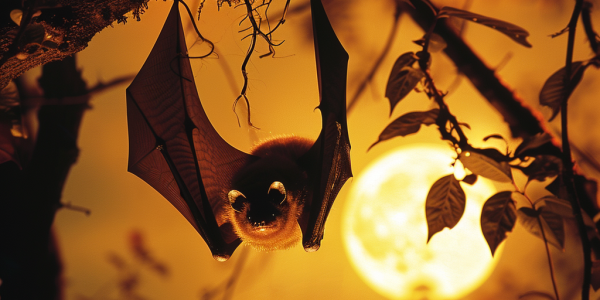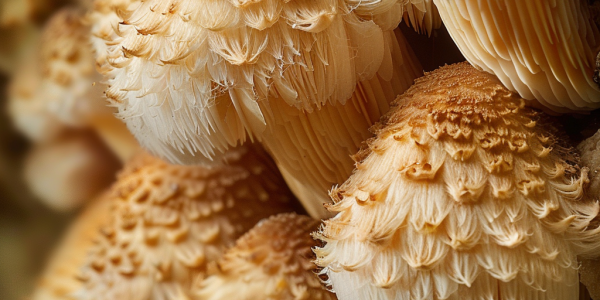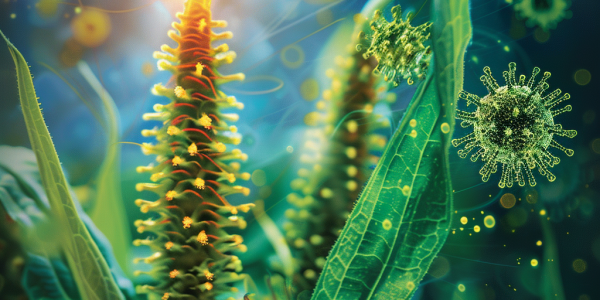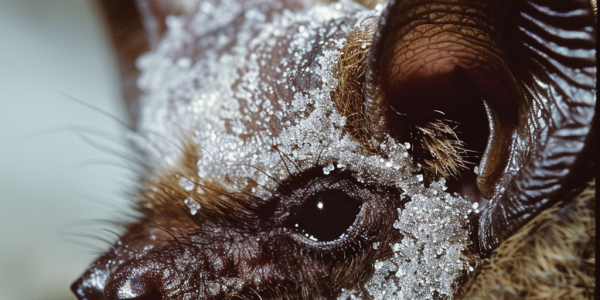Fungi from Peat Bogs Show Promise in Treating Tuberculosis
Recent research has discovered fungi from peat bogs that produce substances capable of killing Mycobacterium tuberculosis, the bacterium responsible for tuberculosis (TB). Led by Neha Malhotra from the NIH, this groundbreaking study highlights the potential for new, more effective treatments for TB, which claims over a million lives annually. By targeting crucial biological processes, these natural compounds could lead to shorter treatment regimens and improved patient adherence, offering hope in the fight against this global health crisis.
Bats Face Deadly Threat from White-Nose Syndrome as Halloween Approaches
As Halloween approaches, the plight of North American bats becomes increasingly urgent due to white-nose syndrome, a deadly fungal disease threatening their survival. This article explores the impact of the disease, conservation efforts, and the vital role bats play in our ecosystems. Join the fight to protect these essential creatures and learn about the ongoing research aimed at combating this crisis.
Health Alert Issued for Valley Fever Following Lightning in a Bottle Festival
The California Department of Public Health has issued a health alert for Valley fever linked to the Lightning in a Bottle music festival, where five cases were confirmed among attendees. With over 20,000 participants, health officials urge vigilance for symptoms like fever and cough. Valley fever, caused by inhaling coccidioides fungi spores, can lead to severe complications. Attendees are advised to monitor their health and seek medical attention if symptoms arise.
Microscopic Fungi Enhance Soil Carbon Storage in Newly Formed Arctic Landscapes, Study Finds
Recent study by researchers at Queen Mary University of London reveals how microscopic fungi enhance soil carbon storage in newly formed landscapes resulting from the shrinking of Arctic glaciers. The colonization of microorganisms in exposed areas plays a crucial role in soil formation, offering significant carbon stores under specific conditions. Dr. James Bradley’s team’s findings, published in Proceedings of the National Academy of Sciences, shed light on the complex processes involved in post-glacial soil formation in Arctic regions.
Desert Fungi and Lichens Threaten Ancient Rock Art in Negev Desert
Discover how desert-loving fungi and lichens are threatening 5,000-year-old rock art in the Negev desert of southern Israel. Learn about the acids secreted by these organisms that can erode the ancient petroglyphs and the efforts needed to protect this cultural treasure for future generations.
Exploring the Health Benefits of Lion’s Mane Mushrooms
Discover the therapeutic properties of lion’s mane mushrooms for managing metabolic and cardiovascular health. Learn how lion’s mane can help with diabetes, obesity, and heart diseases, as well as its rich content of dietary fiber, vitamins, and minerals. Incorporate this unique mushroom into your diet for a flavorful and nutritious boost.
Mycoviruses Enhance Fungicide Effectiveness Against Plant Pathogens, Study Finds
Discover how scientists at Osaka Metropolitan University found that mycoviruses can enhance fungicide effectiveness against plant pathogens like Globisporangium ultimum. Learn how this breakthrough could revolutionize disease control in agriculture and reduce the need for chemical treatments.
Rare Case of Sexually Transmitted Ringworm Reported in New York City
Health officials in New York City issue a warning about a rare case of sexually transmitted ringworm, trichophyton mentagrophytes type VII (TMVII), reported in the U.S. for the first time. The case involves a man in his 30s with a red, itchy rash on his penis, legs, groin, and buttocks after engaging in sexual activities with multiple partners. Doctors at NYU Langone Health detail the case and treatment process in JAMA Dermatology, emphasizing the importance of prompt medical attention for persistent itching or skin eruptions in the genital area.
Deadly Fungus Threatens Bat Populations in Colorado
Learn about the dire threat facing bat populations in Colorado as they battle against the deadly fungus causing white-nose syndrome. Discover how this lethal fungal disease is impacting bats and the ecological consequences it may have throughout the state. Find out more about the spread of white-nose syndrome and the importance of monitoring and mitigating its effects on bat populations.
Top 10 Mushrooms and Their Health Benefits
Discover the health benefits of 10 easily available mushrooms, from antioxidant-rich Portobello to immune-boosting Shiitake. Incorporate these flavorful fungi into your diet for heart health, weight management, bone support, and more!










